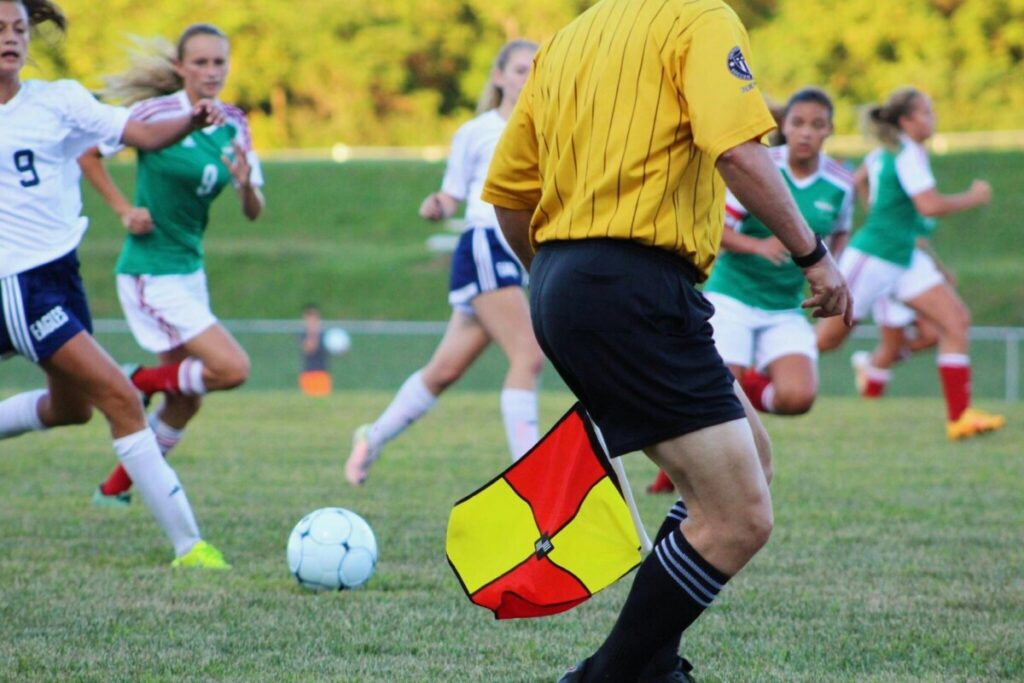
Community sport requires the participation of many different people. Athletes, coaches, volunteers, and at times, spectators. But there is another group of people who are essential to a successful match in any sport: Referees.
Despite their importance, there is a shortage of officials across community sport. Why is this happening? In 2023, the Sport Information Research Council (SIRC) published an article about a culture that has contributed to a diminishing supply of officials. This includes issues surrounding abuse, a lack of organizational support, and a lack of compensation. Like many other aspects of sport, the COVID-19 pandemic has also been cited as a contributing factor to the shortage.
In a 2021 CityNews article, Hockey Canada’s manager of officiating Dan Hanoomansingh said that games were being cancelled, particularly in rural areas, due to a short supply of officials. Hanoomansingh said that there was no issue in recruiting referees, particularly young officials, but retaining them was difficult due to a culture of verbal abuse.
What is clear is that continued harassment of young officials could drive more of them away from their sport. This affects everyone involved and could cause long-term damage to the health of sport programs who rely on officials, whether they are paid staff or volunteers.
Some organizations are taking action to solve this issue and create a better culture for officials in their sport. Ontario Soccer is currently running a multi-year program surrounding the bullying and harassment of officials, titled No Ref, No Game. A current phase of No Ref, No Game is a pilot project where officials wear body cameras to deter this abusive behaviour, while also collecting data for disciplinary and research purposes.
A youth baseball league in New Jersey has taken a different approach to combatting abuse from parents and spectators, which drove several referees to resign from the league. Last year, the Deptford Little League instituted a rule where anyone who violated the league’s code of conduct with regard to spectator behaviour would be required to work three assignments as an umpire and would not be allowed to continue watching league games until their “punishment” was complete.
The bottom line is this: Officials are integral to the current and future success of community sport. They play a major role in the enjoyment of sport, especially at the youth level. A culture of abuse needs to be replaced with a culture of respect. Nobody wants games to be cancelled because of a problem that can easily be solved with some patience and empathy.
In many cases in community sport, officials are unpaid volunteers. These are some of the most essential volunteers for the success of community sport programs, and most organizations cannot afford to lose them. The Ottawa Sport Council is currently developing a volunteer resource project to improve the way community sport organizations recruit, manage and retain volunteers. Stay tuned for more updates on this project.